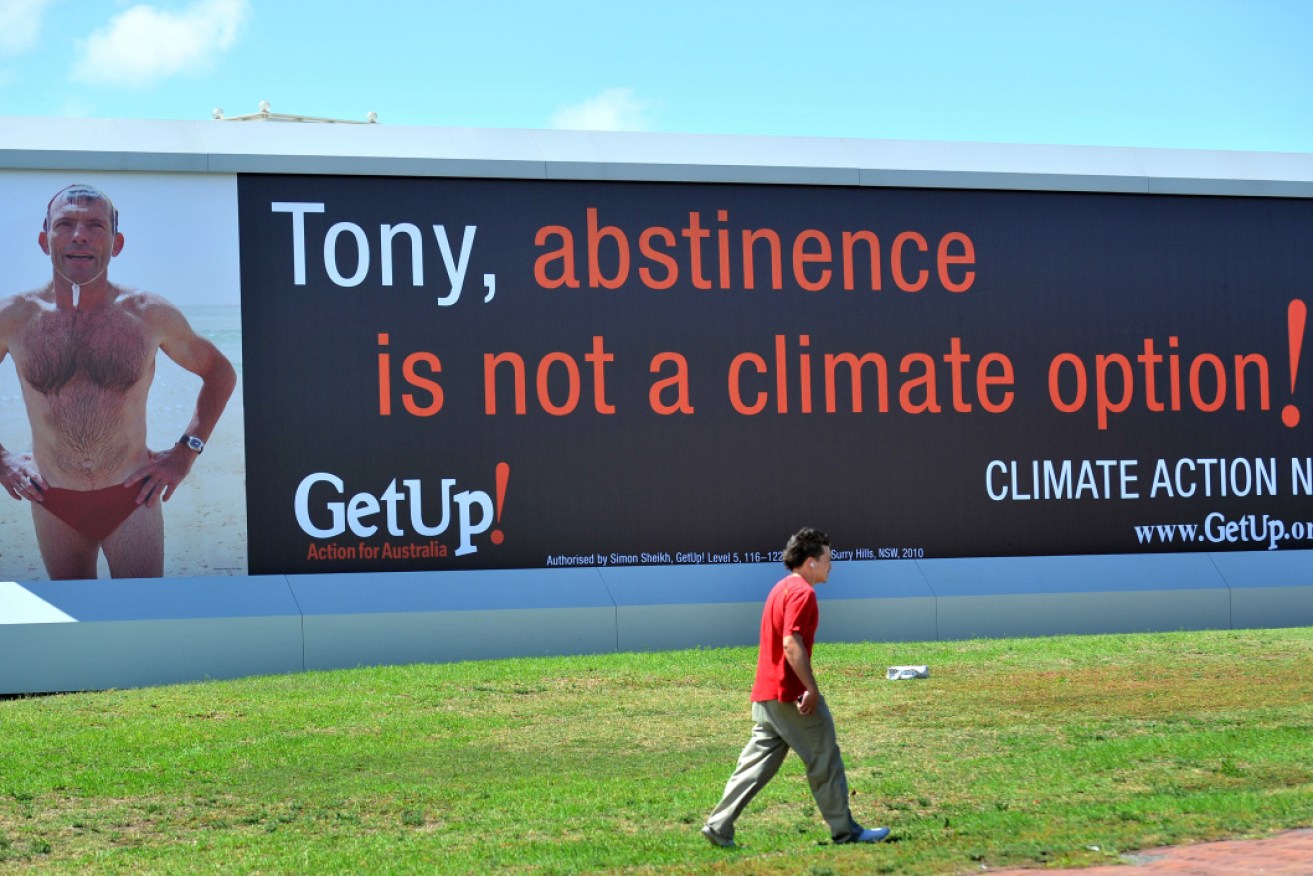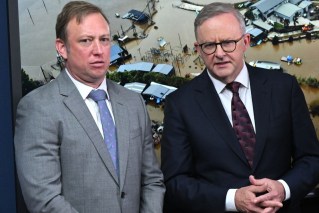The bipartisan carbon/energy policy we could have: A revenue-neutral carbon tax


Tony Abbott turned climate change into a Left v Right issue, when it's not. Photo: AAP
Australian federal politics is in a unique position.
Alone in the world, neither of our major political parties has an energy policy or, if the Coalition were honest, a real carbon policy.
And that could be an opportunity for a genuine, effective, rational, even bipartisan carbon policy if we had some semi-competent leaders.
(I also believe the Wallabies will have a good crack at the Rugby World Cup.)
Labor is a policy-free zone while it licks its election wounds and seems to be edging away from the Shorten renewables target.
The Coalition is reaching for a decidedly non-free-market, “Big Stick” legislation stunt to wave around as cover for being incapable of formulating an energy policy acceptable to its Neanderthal rump.
What it calls its carbon policy is worse than nothing as it splurges billions on “direct action” that is not lowering carbon emissions – despite occasional ministerial claims to the effect that black is white, and the sun rises in the west.
And this while in the heartland of climate denialism, Queensland rainforests burn in September, the northern inland rivers are drier than during the millennium drought and there’s nothing to show for the half-billion-dollar Band-Aid thrown at the Great Barrier Reef.
In this policy vacuum, what if there were an answer sitting on the shelf that should appeal to socialist tree-huggers and conservative economic rationalists alike, a policy that empowered the neoliberal individual for the overall benefit of society?
There is. It’s called a revenue-neutral carbon tax.
(Given that Australian voters are allergic to the T word, it might have to be called a “revenue-neutral carbon price” instead, but as we’re adults in this room, we can say … “tax”.)
The concept is simple. The government puts a considerable and steadily rising price on the carbon in fossil fuels with no exceptions. It then returns all the money raised to the people as income tax cuts and welfare increases.
The individual then decides whether to profit, lose or break even on the carbon price.
Keep doing what you’re doing and the extra money paid for petrol and electricity comes back as a tax cut.
Increase your carbon production by buying a V8 truck and running your air-conditioning more, you lose money.
Become more carbon-frugal by paying attention to the energy consumption of new appliances, turning those appliances off at the wall more often, insulating your home, buying a more energy-efficient vehicle or even a (shudder) electric car and you have more money in your pocket to spend on other things.
This isn’t a theory. It’s been tried and it works.
The Canadian province of British Columbia introduced it in 2008. Down went carbon emissions, and the economy grew faster than the rest of Canada.
BC has a carbon advantage in that most of its electricity comes from hydro, so that the carbon tax is most visible in the price of automotive fuel and heating gas.
On the other hand, yes, its citizens do fill up their tanks whenever they cross the border – something that wouldn’t be an issue for an island nation.
Like Australian states, BC is large with some distant communities. Some extra allowance had to be made for those who have to use more fuel than average. It can be done.
As has been stated plenty of times, there’s not a credible economist who doesn’t think pricing carbon is the most efficient way of dealing with carbon pollution. Most of the world’s governments are – or are committed to – doing it in one form or another.
If any government is serious about climate change, it becomes a matter of which form of carbon price makes the most sense, which is the most politically saleable.
Colbert’s axiom applies: The art of taxation consists in so plucking the goose as to procure the largest quantity of feathers with the least possible amount of hissing.
Making a carbon tax revenue-neutral absolutely minimises hissing, except for the inevitable fossil fuel shills and climate denialists.
A revenue-neutral carbon tax is so reasonable that even prominent Republicans want it and have tried to explain it to the Trump administration. Alas, there’s no indication of rational thought having any sway there.
Here, the phrase “carbon tax” was successfully turned into political poison by Tony Abbott. As has since been admitted, that wasn’t from any basis of economic or climate policy, but purely as a “whatever it takes” tool for winning an election.
His legacy has been to make Australia one of only a couple of countries where climate change is seen as a Left v Right issue. Unfortunately, a significant part of the Coalition hasn’t managed to evolve beyond Australia’s most destructive politician.
But Mr Abbott has gone – and gone further than anyone might have imagined.
Despite being on the board of the Ramsay Centre for Western Civilisation and all his talk about said civilisation, he has abandoned it to figuratively get into bed with the corrupt, racist and decidedly illiberal Hungarian strongman, Viktor Orban.
With Mr Abbott now beyond the pale and Prime Minister Scott Morrison saying he is focused on middle Australia, perhaps the Liberal Party could move on to policy that actually worked and did not cost middle Australia the billions of dollars wasted on dubious “direct action” – paying farmers to bury carbon, paying companies to make energy efficiencies they would have done anyway.
Meanwhile, the Labor Party claims everything is up for grabs with all policies to be reviewed after recording its lowest primary vote in a century.
To hold on to what’s left of its climate-aware base, Labor urgently needs a carbon policy that is both effective and saleable.
If Labor learned to communicate again, a revenue-neutral carbon price need not frighten central Queenslanders the way tough-sounding renewable targets do.
Of course the Greens wouldn’t like it, always wanting something tougher and more immediate. For people who are serious about climate, there is indeed a very good case for a carbon tax that goes beyond neutral.
But while economics might be the dismal science of the theoretically ideal, politics remains the art of the possible. A revenue-neutral carbon tax would be possible and it would work.
Is there a major political party here that might want that?








